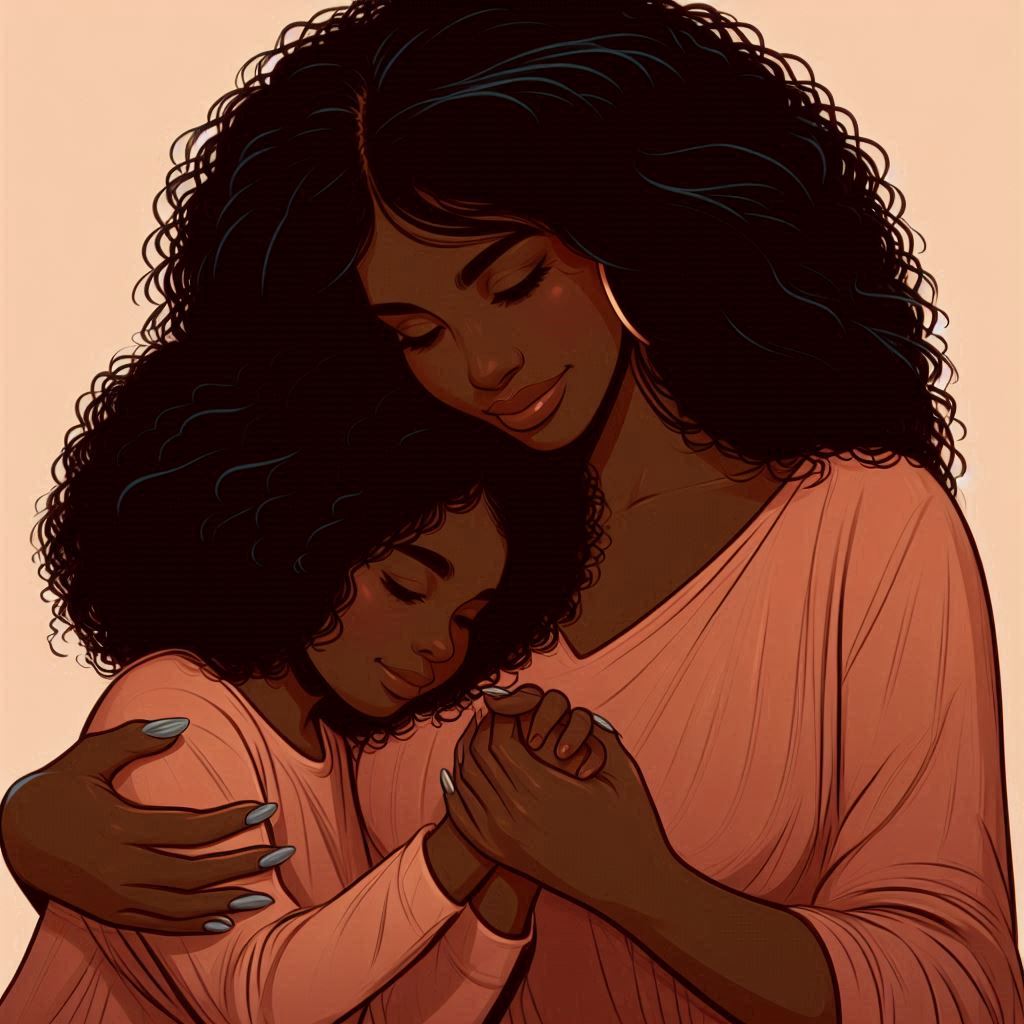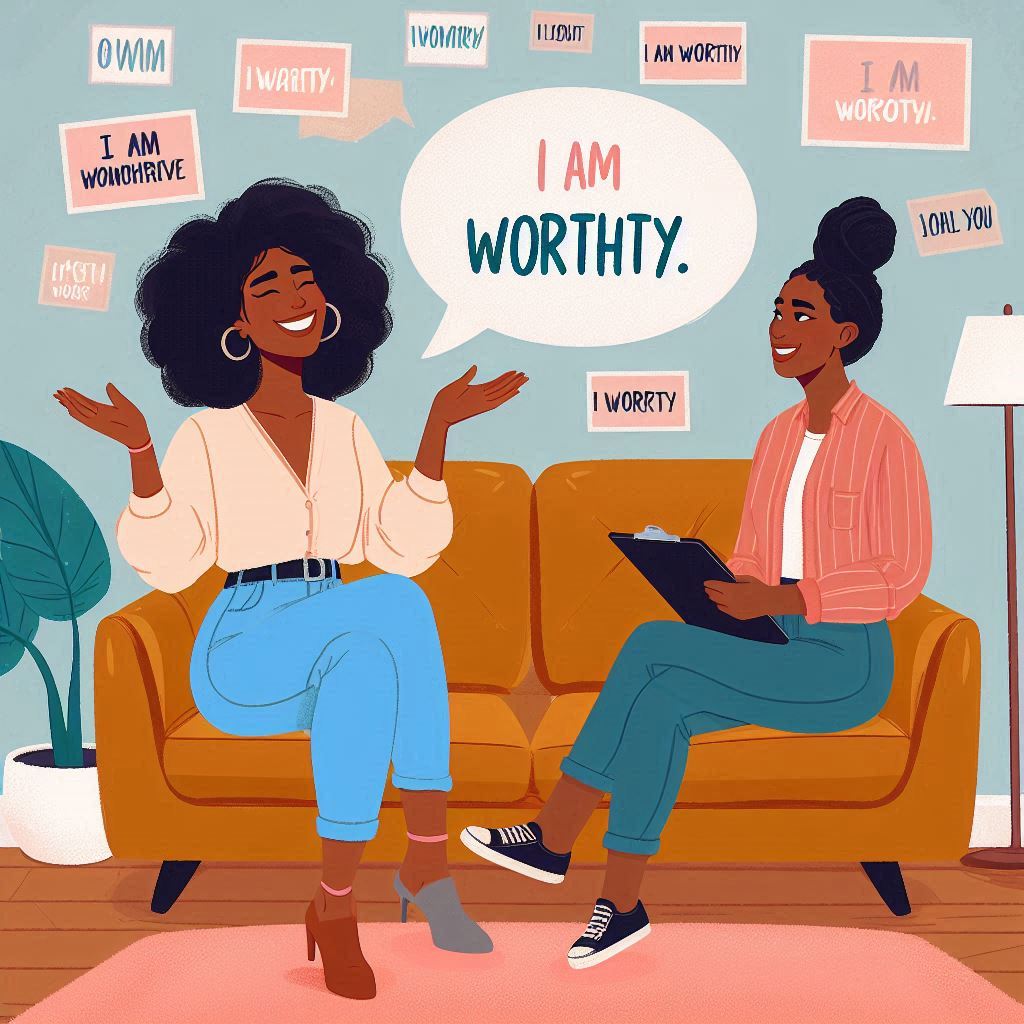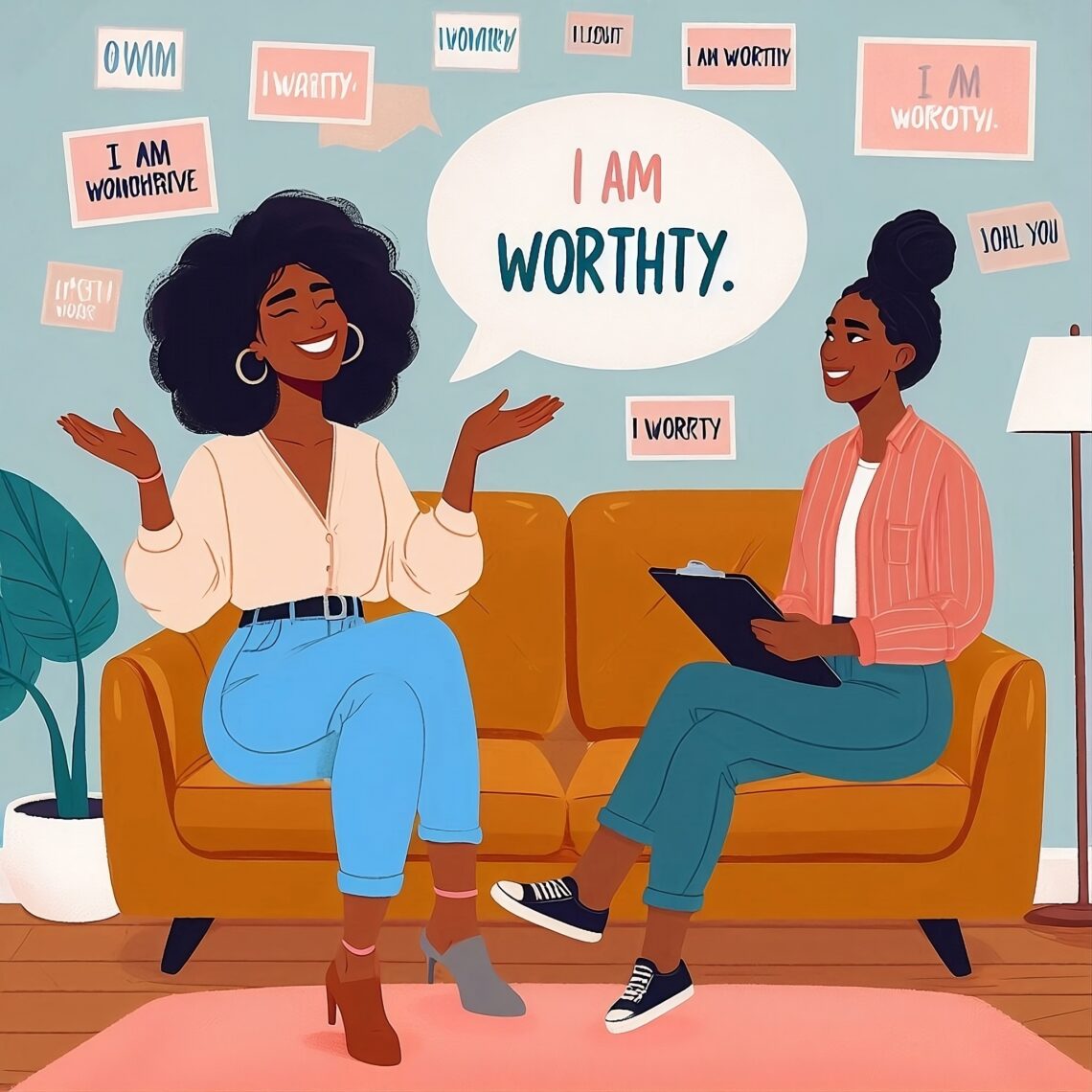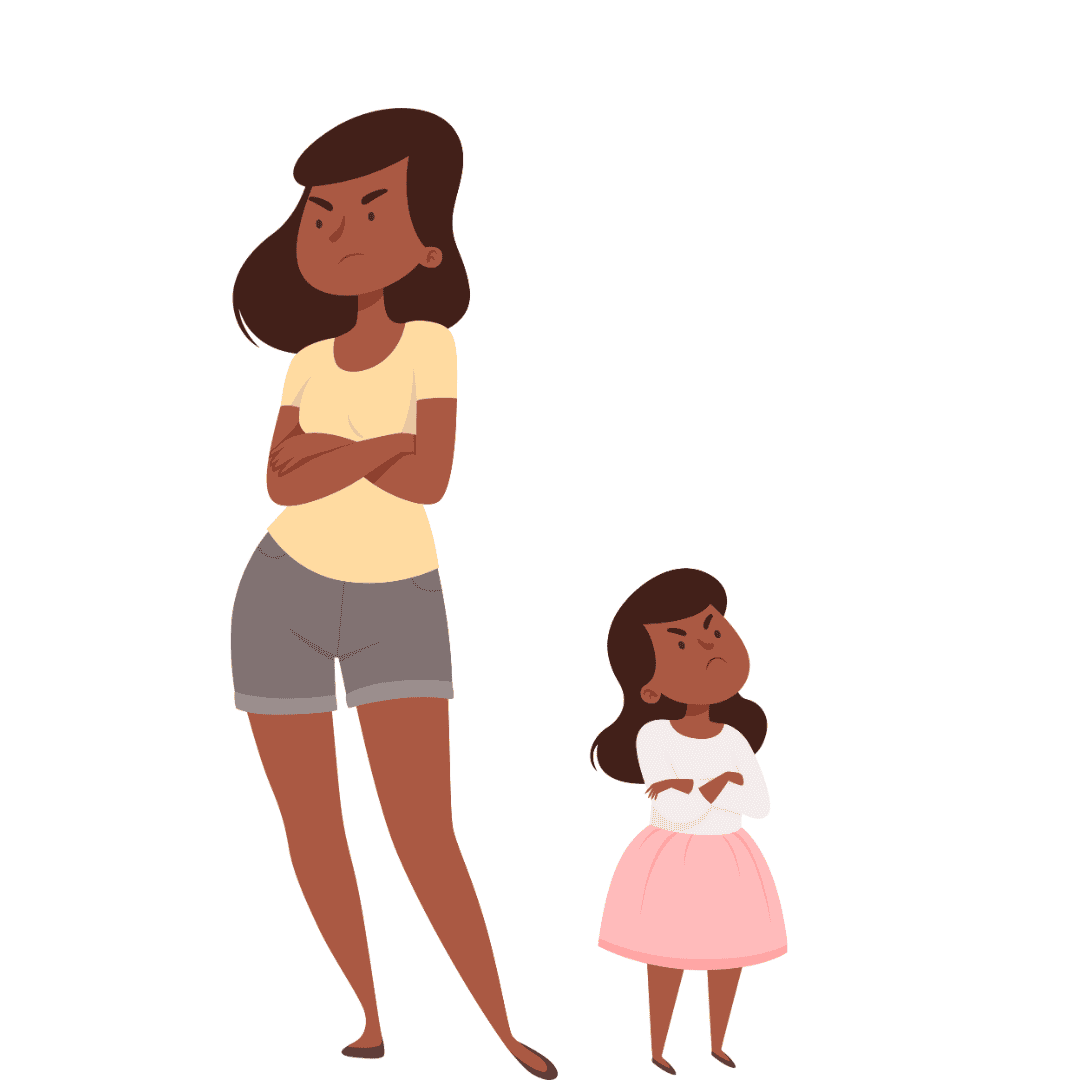-
How To Break Generational Trauma: 9 Lessons to Unlearn From Your Toxic Upbringing
Disclaimer: This blog post talks about unlearning toxic lessons learned from a toxic upbringing and healing from childhood trauma as an adult. This is an informative post intended to educate, and there may be errors and information that may be omitted. I am not a qualified psychologist or a mental health professional, so please read this blog post with caution. The focus of this blog can change at any time.
Introduction
How do you unlearn all the toxic behaviours you learned from toxic African parents? It’s not easy, and it can be frustrating because they refuse to take accountability and care more about themselves than their own children’s needs.
One thing I’ve noticed is that some parents haven’t healed, and they choose not to, and it’s a shame. But we have to move on and live our lives, and that starts with breaking the cycle of generational trauma.
So, how can you break free from toxic parenting and move on from all the shame and criticism that you had to deal with as a child? Now that you are an adult, you can start making decisions such as limiting your contact or removing all contacts with your parents.
The healing journey isn’t a walk in the park, it is becoming more aware of the possibilities in life and how you can remove yourself from those unfavourable circumstances and start living a life where your needs are met and fulfilled.
The scars from a toxic household don’t heal overnight. They hide in our mindset, and we end up doubting ourselves, developing imposter syndrome and hiding from the world, not using the gifts that we possess.
Neo soul singer Erykah Badu was right about Bag Lady when she sang “Bag lady you gon hurt yourself, you got too much stuff…” This song is about not letting past relationships affect your current relationships, a concept that can also be applied to unlearning and healing from generational trauma.
Here are 9 crucial lessons to unlearn so that you can make changes, even if you live at home with your parents, you can still limit contact with them and focus on yourself.

An image by Dall-e 3 of a black woman hugging her inner child. According to PsychCentral, they defined toxic childhood as a period in a person’s childhood that has unfavourable experiences that affect them later in their adulthood.
Examples are:
- You experienced different forms of abuse- verbal, emotional, psychological and sexual.
- Your parents were overprotective, controlling or neglected.
- You didn’t feel supported and received a lack of validation from parents or other authority figures.
- Your emotional needs weren’t met.
1. Love is Conditional
If your parents never showed you affection, chances are that they grew up in a household where affection wasn’t prioritised.
In addition, you don’t know what love is unless you watch films and TV shows, because that was never shown to you growing up.
If we were taught that love is conditional, then this means parents will show you love if you obey them or do well in school. If that was your understanding of how your parents show love, then it is very negative because this could affect you when you start to have relationships with other people.
This implies people pleasing, which is something that doesn’t make us look and feel confident. There is a song called Show Me Love by Robyn, and as I got older and started to understand the song, she was talking about love as a behaviour, which made me realise that the concept of love is a behaviour.
This affects black women because we watch and we hear stories online about black women in unhealthy relationship dynamics where there is the “struggle love” and “ride or die”, which is a disastrous form of showing love and doesn’t benefit black women in any shape or form.
The struggle love idea is too rampant, and it tells black women that we have to ride or die for a male partner who doesn’t show any love towards black women and ride or die for a partner who doesn’t even treat them right, let alone respect black women.
Now that we understand how the concept of love shapes our understanding of how we think of ourselves, what we can do is think about how we give and receive love. One thing you can start doing is to practice self-compassion. Looking back, I realised I didn’t practice self-compassion, and it’s easy enough to ignore your needs. Now, saying affirmations about yourself in the mirror and taking yourself out on solo dates, even starting a hobby, is one way to start healing from the lack of affection and unlearn and reset your life.

2. Hiding Your Feelings
The second toxic behaviour to leave behind is hiding your feelings. The lack of emotional expression is an unhappy state of mind to be in and affects mental health and confidence. This teaches people at a young age that hiding how you feel is normal, and that is not the case. It normalises the pain and glorifies the idea of hiding your feelings and suffering in silence.
One self-care tool that helps is attending therapy, there are plenty of affordable and free counselling services available for black women. For example, in Manchester, the Windrush Centre offers free therapy. This was the first therapy service that I used, thanks to my sister’s recommendation, and it helped me start my healing journey.
3. Unlearning silent treatment
Another toxic behaviour that we have to unlearn is silent treatment. This was mentioned in a previous blog post about toxic African mothers, but silent treatment is a tactic African parents use to punish their children. Instead of communication, they use silence as a way to show their true emotions.
Silent treatment is not the best way. If there is conflict, the best thing to do is to remove yourself from the situation and reflect on what happened and then try and speak to the person.
With toxic parents who don’t prioritise communicating with their children, it’s difficult, and that is one of the challenges of dealing with toxic African parents- they don’t talk about things with their children openly.

An image created by DALL-E 3 showing a black woman walking down a sunny path. 4. Rest Is Not Prioritised
Another toxic behaviour we are leaving behind is not resting. We know the importance of rest, but growing up in a household where you had to do something. If you weren’t doing anything, most likely they would give you something to do.
This implies that we have to do something all the time, and one thing that you don’t think about growing up is the value of rest, and that is something you start to understand as you navigate adulthood.
5. How Not To Argue
Another toxic behaviour we are leaving behind is how not to argue, as in you can’t speak up or state your own opinions because your parents’ opinions matter more than your feelings.
Have you ever had a conversation with your parents or one of your parents, and you were talking about some things and you had different opinions, but it felt like your parents were trying to “win” the discussion, and you felt drained and decided not to continue because it’s not worth your energy.
6. Projection
Another thing we are unlearning and letting go of is allowing our parents’ projections to affect our mental health. This is where your parents like to project their problems onto their children and take out their anger on their children.
This can cause guilt because children may feel obliged to take on their parents’ problems, and may even lead to parentification, where the children are taking care of their parents.
This is making sure we remain unaffected by our parents’ demands because, at the end of the day, we should never allow our parents’ projections to affect our emotions.
7. Lack of emotional connection
The lack of emotional connection between adult children and parents is shocking when you haven’t felt supported growing up, and you didn’t feel like they cared about your interests and were never interested in getting to know you as a person.
As an adult, you learn to understand the importance of developing emotional connections with other people and how important it is to check in with yourself.

An image of a beautiful, dark-skinned black woman holding up a NO sign to set boundaries. 8. The constant justification
Have you ever felt like you had to explain why you are doing something? Some examples could be where you are going, going to the bathroom or why you are dressed in a certain way or wearing your headwrap a certain way.
It’s these little things that make things look bigger than what it is, and there is no need to always justify why you are doing things, and some things don’t need explanation.
9. Always be available
Another lesson to unlearn is that you don’t have to be available to them 24/7; you are not required to be available to your parents all the time.
You are not their chauffeur, receptionist, translator, maid, cleaner or chef. This is why boundaries are important, and not being taught boundaries at a young age is concerning because it is boundaries that you can keep your energy in check.
Final Thoughts
I appreciate the fact that you took your time to read this blog post. If this article moved you, then don’t forget to comment below about how you felt about this article. I want to start a conversation between black women on ways we can unlearn and heal to live our best lives. It fuels my mission of elevating and empowering black women. Let’s take it further and reclaim our narrative together.
Afro Lit Stories


Healing through storytelling, elevating black millenial women, one mindset shift at a time



